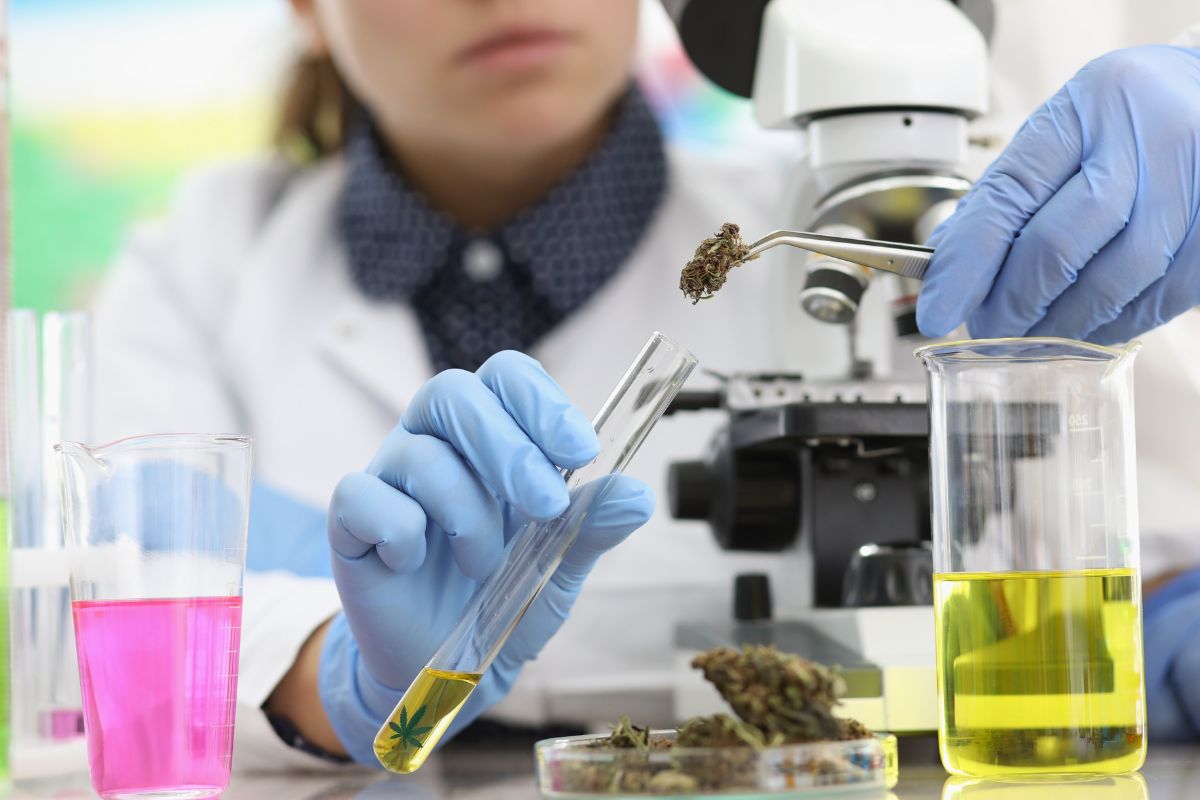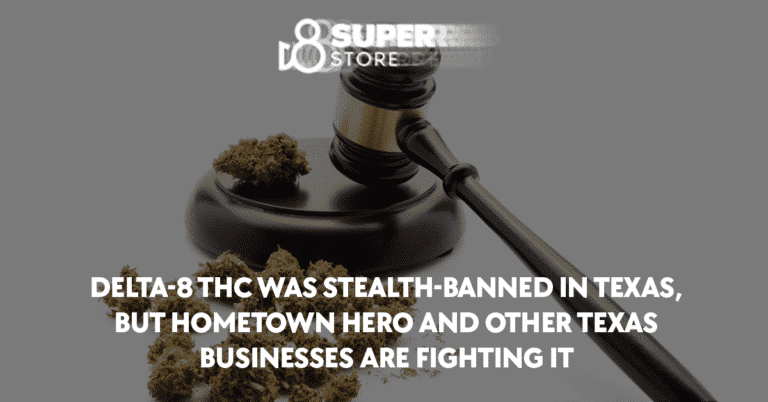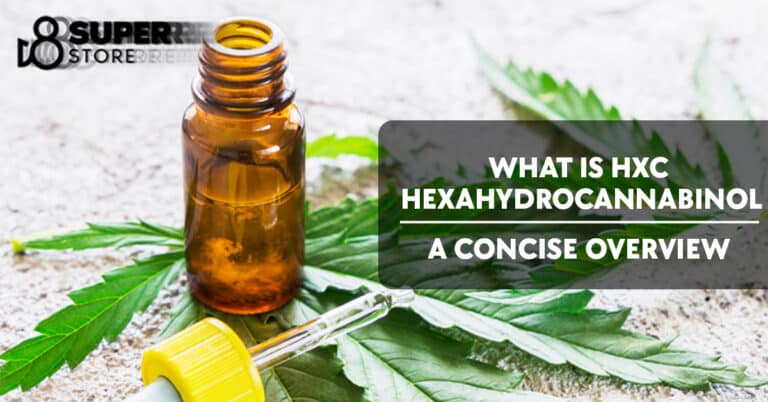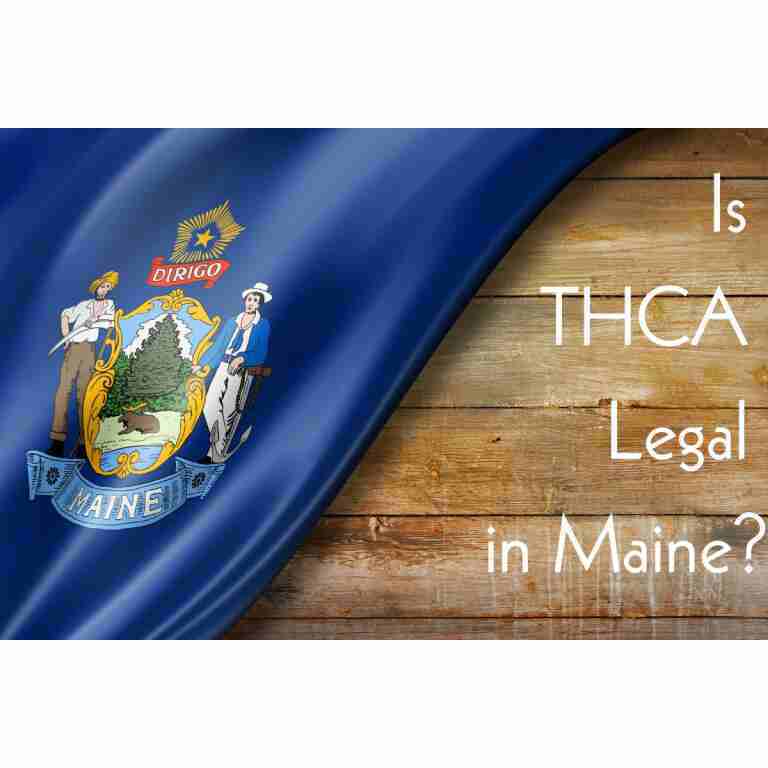Is Delta-11 THC Legal in Tennessee? Navigating Cannabis Derivatives Laws
Eager to explore Tennessee’s cannabis magic, like the mysterious delta-11 THC? Hold your horses before you jump into sampling or selling these goodies. Understanding the legal jigsaw is a must. Delta-11 and its cousins, delta-8 and delta-9 THC, sit under the broad hemp umbrella. But here’s the kicker: navigating through the laws feels like piecing together a puzzle with a blindfold on, thanks to a mishmash of regulations at both the state and federal level. Strap in to conquer the challenge of untangling this intricate web. Before you know it, you’ll decipher what’s legal and what’s not in Tennessee’s vibrant scene.
Table of contents
In Tennessee, your access to THC compounds largely depends on the specific type of THC and its derivation. The state’s stance on hemp-derived products has evolved significantly since the federal legalization of hemp through the 2018 Farm Bill. This bill removed hemp, defined as cannabis with less than 0.3% delta-9 THC on a dry weight basis, from the Schedule I controlled substance list, effectively legalizing it at a federal level. However, the legal status of other THC compounds, including delta-11, can vary based on state legislation.
It’s important to know that Tennessee law mirrors federal law with respect to hemp, meaning that if a compound is derived from legally grown hemp and contains less than 0.3% delta-9 THC, it’s generally considered legal in the state. However, the complexity arises when discussing THC isomers like delta-11, which may not be explicitly mentioned in legislation. Therefore, the legality can be subject to interpretation by state authorities, and it’s crucial to stay informed about the current laws to ensure compliance.
Historical Context of Hemp and THC
As you explore the intricacies of hemp and delta-tetrahydrocannabinol (THC), it’s crucial to grasp the significant shifts that have occurred in federal law, especially with the 2018 Farm Bill, which have led to the current legal landscape of these substances.
2018 Farm Bill Overview
The 2018 Farm Bill is a pivotal piece of legislation that redefined hemp and its legality in the United States. Specifically, it removed hemp, defined as cannabis with a delta-9 THC concentration of 0.3% or less on a dry weight basis, from the list of controlled substances.
This crucial development made the cultivation, production, and sale of hemp-derived products federally legal, paving the way for a burgeoning industry. It’s important for you to understand that although the bill federally legalized hemp, it did not legalize all forms of THC or other hemp-derived cannabinoids across the board.
Hemp Vs. Marijuana Legal Status
Difference between hemp and marijuana is a common point of confusion. Both are varieties of the cannabis plant, but they differ primarily in their delta-9 THC content. Under federal law, hemp must contain no more than 0.3% delta-9 THC, whereas marijuana has higher concentrations of THC and remains federally illegal under the Controlled Substances Act.
However, several states have legalized marijuana for medical or recreational use, which has created a conflicting patchwork of laws. Hemp products, including those containing cannabinoids like delta-8 or delta-10 THC, have surfaced in markets, especially in states where marijuana is not legal, prompting states to review their own regulations in response to the 2018 Farm Bill.
Understanding Delta 11 in Tennessee
In Tennessee, the conversation around cannabinoids, such as Delta 11 THC, involves complex legislation and chemical distinctions. Your comprehension of these factors is crucial to navigate the legal landscape of cannabinoids in the state.
Delta 11 THC Chemical Profile
Delta 11 THC, similar to its more well-known counterparts Delta 9 THC and Delta-8 THC, is a cannabinoid found in cannabis. As a psychoactive compound, it’s known for its ability to alter perception, mood, consciousness, and behavior. Like other cannabinoids, Delta 11 THC undergoes isomerization, a chemical process that can transform one compound into another while retaining the same number of atoms of each element.
Legal Status of Delta 11 in Tennessee
As of the last known data, the legal status of Delta 11 THC in Tennessee remains ambiguous. Unlike Delta-9 THC, the most psychoactive compound found in cannabis, which is strictly regulated, the laws around lesser-known cannabinoids like Delta 11 are less clear. While Tennessee law officially conforms to federal regulations, which have explicitly made Delta-9 THC illegal, there is not always specific mention of the legality of delta-11 or even delta-8. You should be aware that this area of law is complex and subject to change with emerging legislation.
Comparison with Other THC Isomers
Delta 11 THC is one of many isomers of THC, each with varying levels of psychoactive effects and legal status. Delta-9 THC is widely acknowledged for its potency and is illegal under Tennessee law unless in the form of CBD products with less than 0.3% THC content. On the other hand, Delta-8 THC exists in a legal gray area – it’s synthetically derived from CBD and thus could be considered legal, but this interpretation is still under debate. As you compare these isomers, it’s essential to stay informed about current regulations, as they determine the accessibility and use of these substances within the state.
Federal and State Law Interplay
When considering the legality of delta-11 in Tennessee, it is crucial to understand how federal regulations and Tennessee state law intersect and define its legal status.
Federal Regulations on Cannabinoids
Under federal law, cannabinoids, including delta-11, are subject to regulation. The pivotal piece of legislation governing controlled substances is the Controlled Substances Act (CSA). While federal regulations have loosened somewhat with the 2018 Farm Bill, which legalized hemp-derived cannabinoids, the status of specific cannabinoids can vary. The legal landscape is continuously evolving, so it’s essential for you to stay informed about the latest federal updates that might impact delta-11’s legality.
Tennessee State Law Specifics
In Tennessee, state law must be navigated in conjunction with federal legislation. Tennessee has its own set of statutes that govern controlled substances, which includes cannabinoids. The legality of delta-11 in this state would hinge on whether it is derived from hemp and contains less than 0.3 percent THC, which is in alignment with federal stipulations. Tennessee state law may have specific regulations that dictate the handling, distribution, and consumption of delta-11, highlighting the importance of consulting state-specific legislation to ascertain its legal status.
Legality of THC Products in the US
The United States exhibits a complex patchwork of cannabis laws that vary by state, including the legality for both medical and recreational use, as well as the regulation of substances like delta 11 THC.
States with Legal Recreational and Medical Cannabis
In the US, a growing number of states have legalized cannabis for both recreational and medical purposes. This list includes but is not limited to:
- Alaska
- Arizona
- California
- Colorado
- Maine
- Massachusetts
- Michigan
- Oregon
- Vermont
- Washington
For example, in states like California, Massachusetts, and New York, adults can legally purchase and consume cannabis, provided they meet the age requirement, which is typically 21 years.
States with Restrictions or Bans on THC Products
Conversely, several states maintain strict regulations or outright bans on THC products, regardless of whether they are derived from marijuana or hemp. States with restrictive approaches include, but are not limited to:
- Idaho
- Kansas
- Iowa
In Idaho, the sale and possession of all THC products remain illegal. In contrast, a state like Tennessee exists in a gray area, where certain hemp products like those containing delta 11 THC might skirt the boundaries of legality.
The federal stance on cannabis maintains its classification as a Schedule I drug, though this does not always directly impact state decisions on cannabis legalization. It is imperative to note that the legality of specific compounds like delta 11 THC still falls under a complex legal framework and continues to evolve at both state and federal levels.
Regulation and Enforcement
In navigating the legal landscape of Delta-11, it’s crucial for you to understand the dual layers of regulation and enforcement applied by federal and state entities, particularly concerning how these compounds are produced, regulated, and enforced.
Federal Oversight by DEA and FDA
At the federal level, the Drug Enforcement Administration (DEA) and the Food and Drug Administration (FDA) play pivotal roles in the oversight of controlled substances, including Delta-11. The DEA ensures compliance with controlled substance laws and regulations and has the authority to enforce these. In the case of Delta-11 and related cannabinoids derived from hemp, there is often a complex interplay between legal definitions and enforcement practices, which hinges on the concentration of delta-9-THC (the primary psychoactive component in cannabis) and the source of the substance.
On the other hand, the FDA regulates the introduction of new drugs and monitors the safety profiles of substances. Any claim relating to the medical benefits of Delta-11 would require FDA scrutiny and approval before being lawfully marketed.
State-Level Regulation and Compliance
For you as a resident or business in Tennessee, state laws and regulations come into play alongside federal oversight. Tennessee has its controlled substance prescribing rules and regulations that stipulate the legal handling of various substances, including cannabinoids like Delta-11.
Tennessee’s approach to regulating such substances may involve controlled substance scheduling and the establishment of specific licensing requirements for the production and sale of cannabinoid products. Compliance with state laws is just as crucial as federal regulations, as state enforcement agencies have the authority to impose penalties or criminal charges for violations. It’s your responsibility to stay informed and compliant with both layers of law to ensure that any involvement with Delta-11 is within legal boundaries.
Industry Impact and Consumer Guidance
Understanding the legal landscape of delta-11 in Tennessee is crucial not only for businesses operating within the cannabis industry but also for consumers interested in cannabinoid products. Your awareness of current regulations and product information is key.
Implications for Cannabis Industry
The cannabis industry in Tennessee is navigating a complex regulatory environment, particularly with the emergence of hemp derivatives like delta-8, delta-10, and delta-11—compounds structurally similar to delta-9-tetrahydrocannabinol (THC), the primary psychoactive component in marijuana. While cannabidiol (CBD), a non-intoxicating compound, remains broadly legal, the status of other cannabinoids can vary. The legality of delta-11 is a topic of active discussion, with legal interpretations often centered on its derivation from hemp, as hemp-derived compounds may fall under certain legislative protections.
Given this ambiguity, it is paramount for industry participants to carefully monitor updates from regulatory bodies, like the Marijuana Enforcement Division, and adjust business strategies accordingly. Marketing of products like delta-10 and delta-11 may face scrutiny, and companies must ensure compliance to avoid penalties.
Consumer Awareness and Education
As a consumer, you should read and stay informed about the substances you use, especially with something as new and as legally gray as delta-11. Be aware that while these compounds can be found in products marketed for recreational use, their legal status can fluctuate, impacting their availability and legality.
When considering the use of hemp derivatives, verify the sources and examine lab reports to ensure product safety and legality. Products labeled as “hemp-derived” may not guarantee legality, so it’s essential to understand Tennessee’s position on each cannabinoid. Your health and legal standing could depend on this due diligence.
Emerging Trends in THC Legislation
As you navigate the intricate landscape of THC regulations, it is crucial to understand the recent legal shifts impacting hemp-derived products and cannabis isomers. These changes reflect a country grappling with the science and commerce of cannabis, influencing what’s accessible in your state.
Innovations in Hemp-Derived Products
With the introduction of the 2018 Farm Bill, hemp lost its classified status as a controlled substance, given it contains no more than 0.3% delta-9 THC on a dry weight basis.
Frequently Asked Questions
In this section, you’ll find precise information about the legal aspects and implications associated with Delta-11 THC in Tennessee.
What is the legal status of Delta-11 in the state of Tennessee?
Delta-11 THC is a cannabinoid similar to Delta-8 and Delta-9, and its legality can be complex as it depends on its source and the specifics of state law. As of the knowledge cutoff in early 2023, it is essential to review the most recent Tennessee controlled substance prescribing guidelines and state legislation to determine the current legal status.
Can Delta-11 THC appear in a standard drug screening?
Just like other THC compounds, Delta-11 THC may be detectable on a drug test. The metabolites of THC variants can often trigger a positive result for cannabis use.
In terms of potency, how does Delta-11 compare to Delta-9 THC?
Delta-11 THC is less researched than Delta-9, which is the primary psychoactive compound in cannabis. Generally, Delta-9 is considered the benchmark for potency against which other cannabinoids are compared.
Is there a difference in effects between Delta-11 and Delta-8 THC?
Delta-11 and Delta-8 THC are both cannabinoids with psychoactive effects, but they can differ in strength and impact. Delta-8 is typically milder than Delta-9, and while comprehensive studies on Delta-11 are lacking, anecdotal evidence suggests it may have distinct effects of its own.
What are the known safety profiles for Delta-11 THC products?
The safety profile of Delta-11 THC products has not been extensively studied. It is crucial to approach any cannabinoid with caution and to seek products that have been third-party tested for purity and contaminants.
Are there any restrictions on purchasing Delta-11 products in Tennessee?
Tennessee may have specific restrictions regarding the sale and purchase of THC products, including Delta-11. Always verify the current statutes and regulations in Tennessee before attempting to buy any THC product to ensure compliance with state law.







